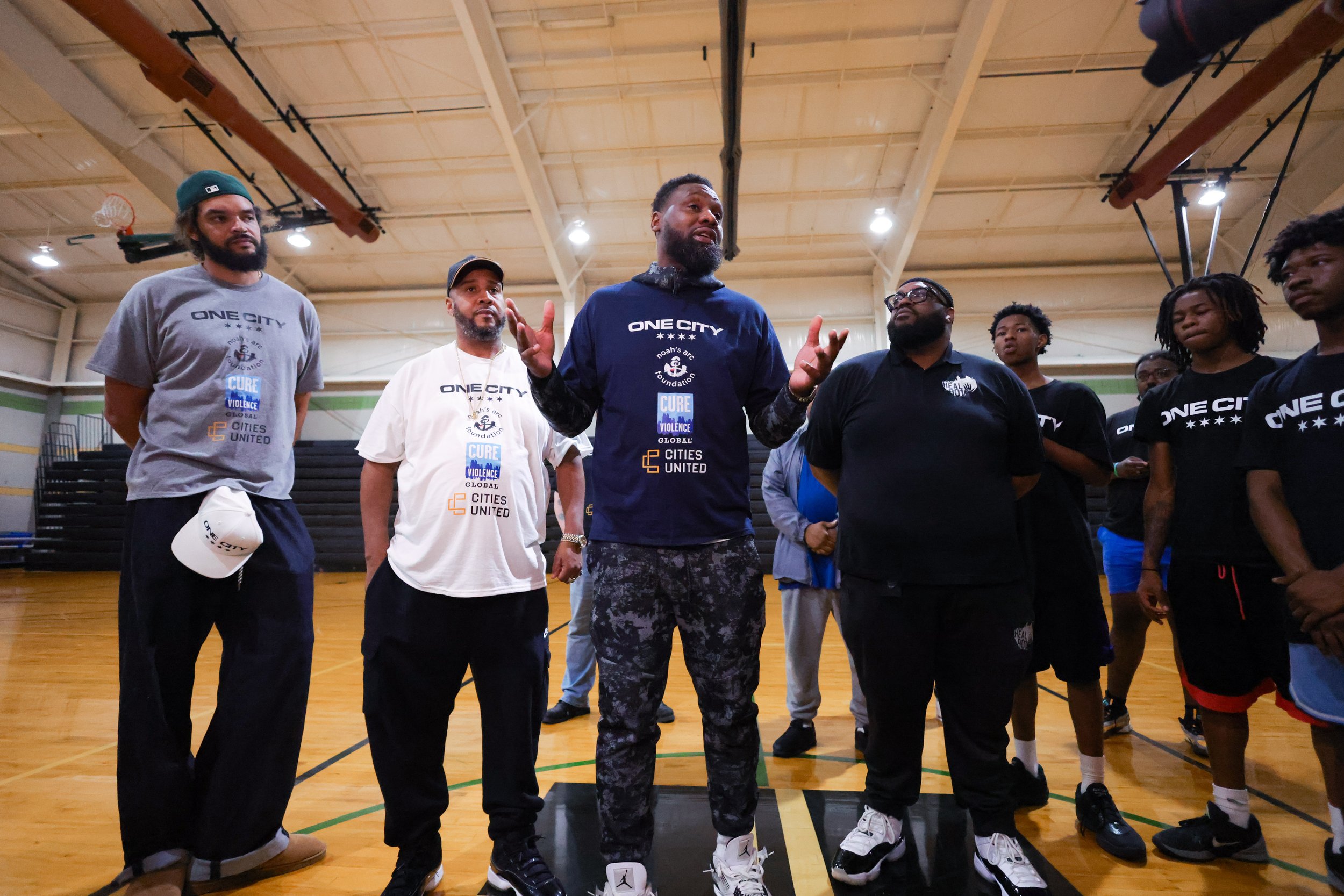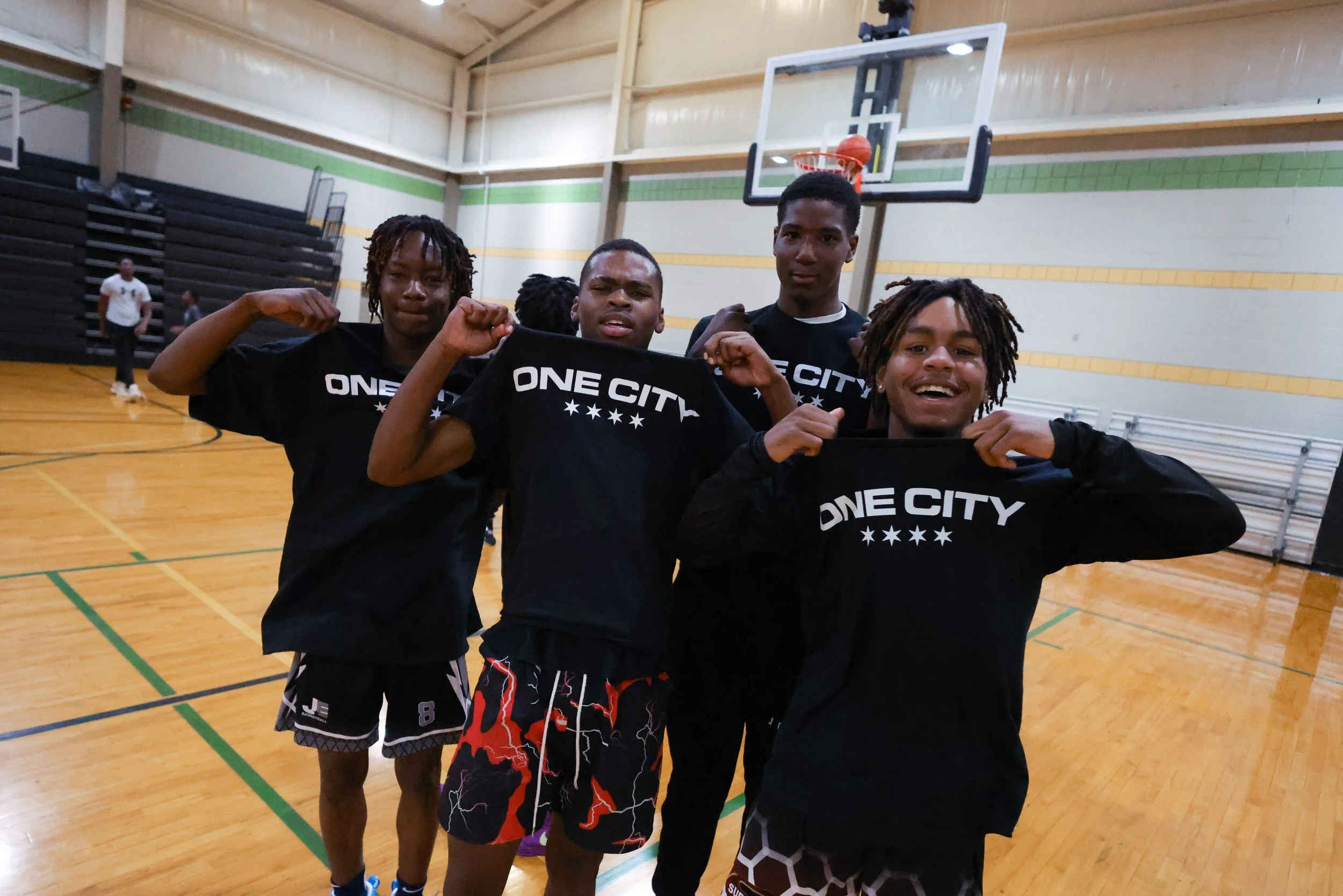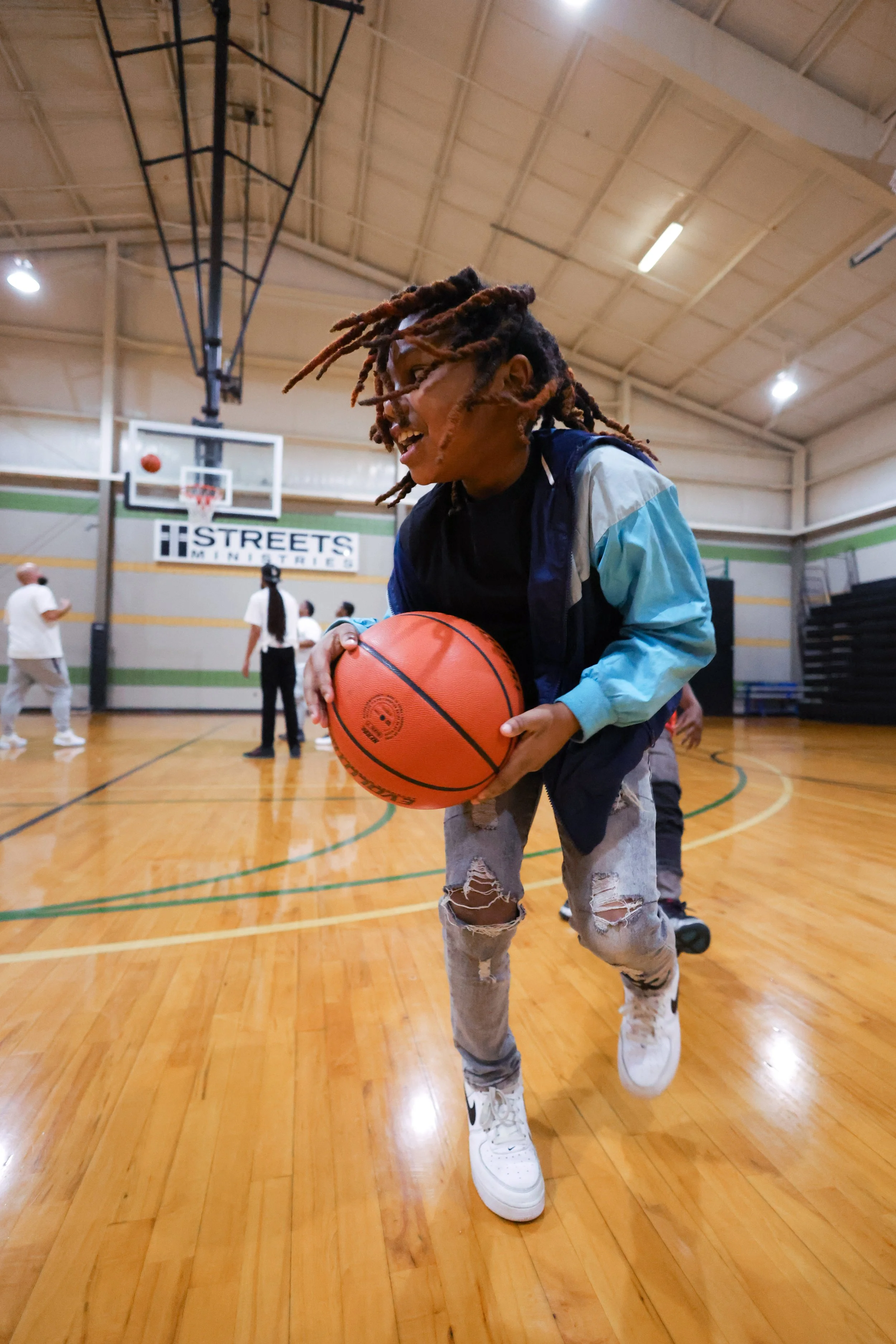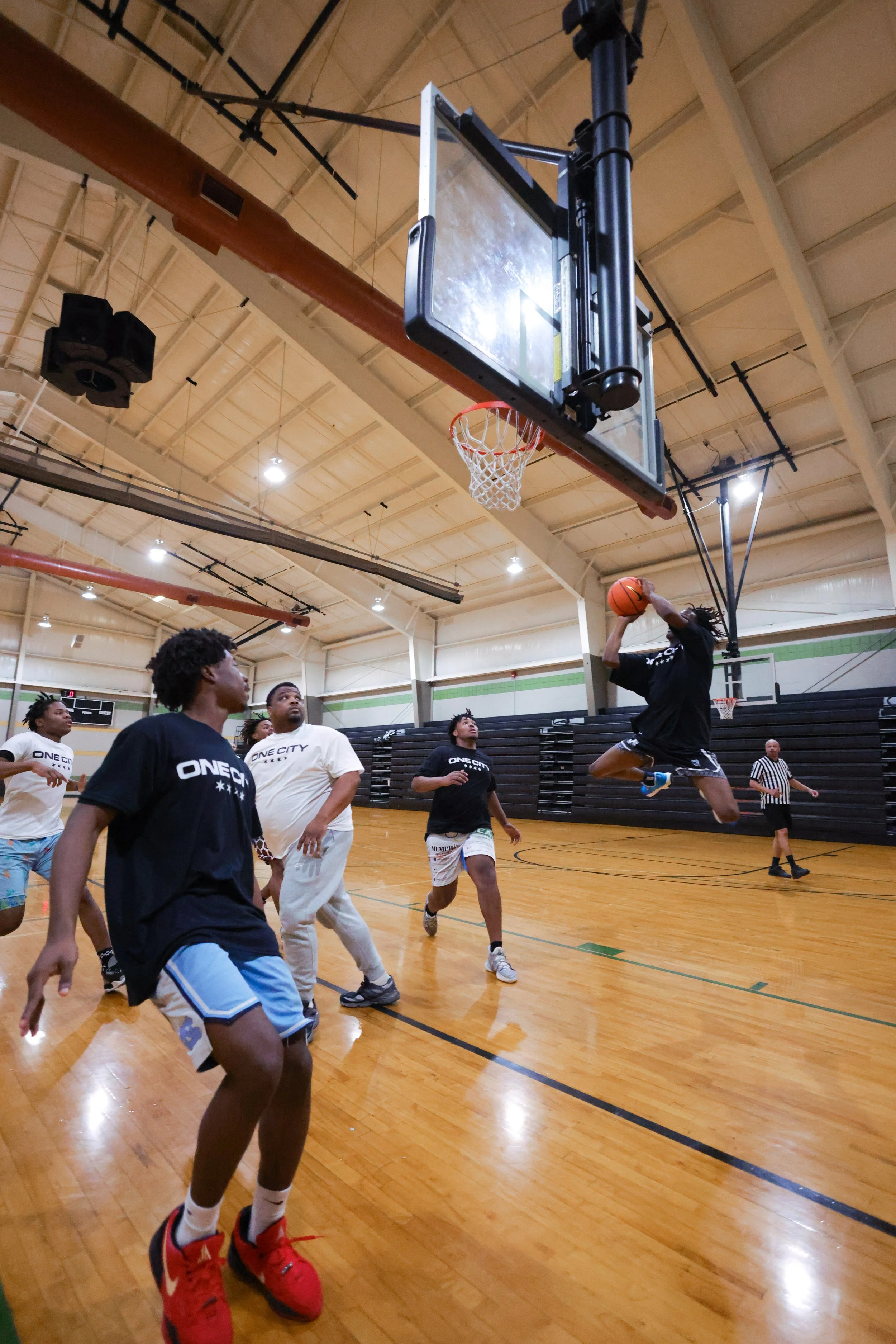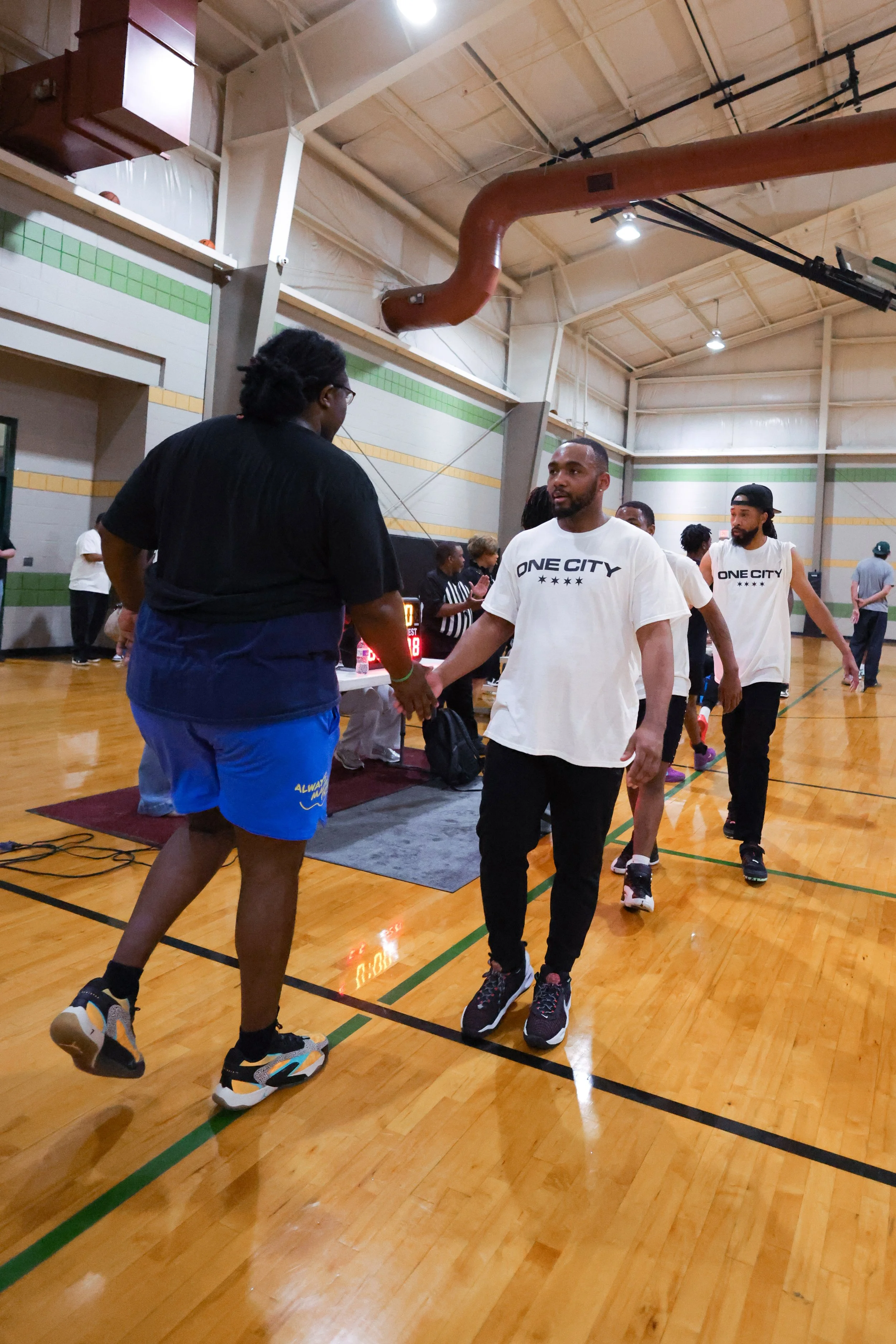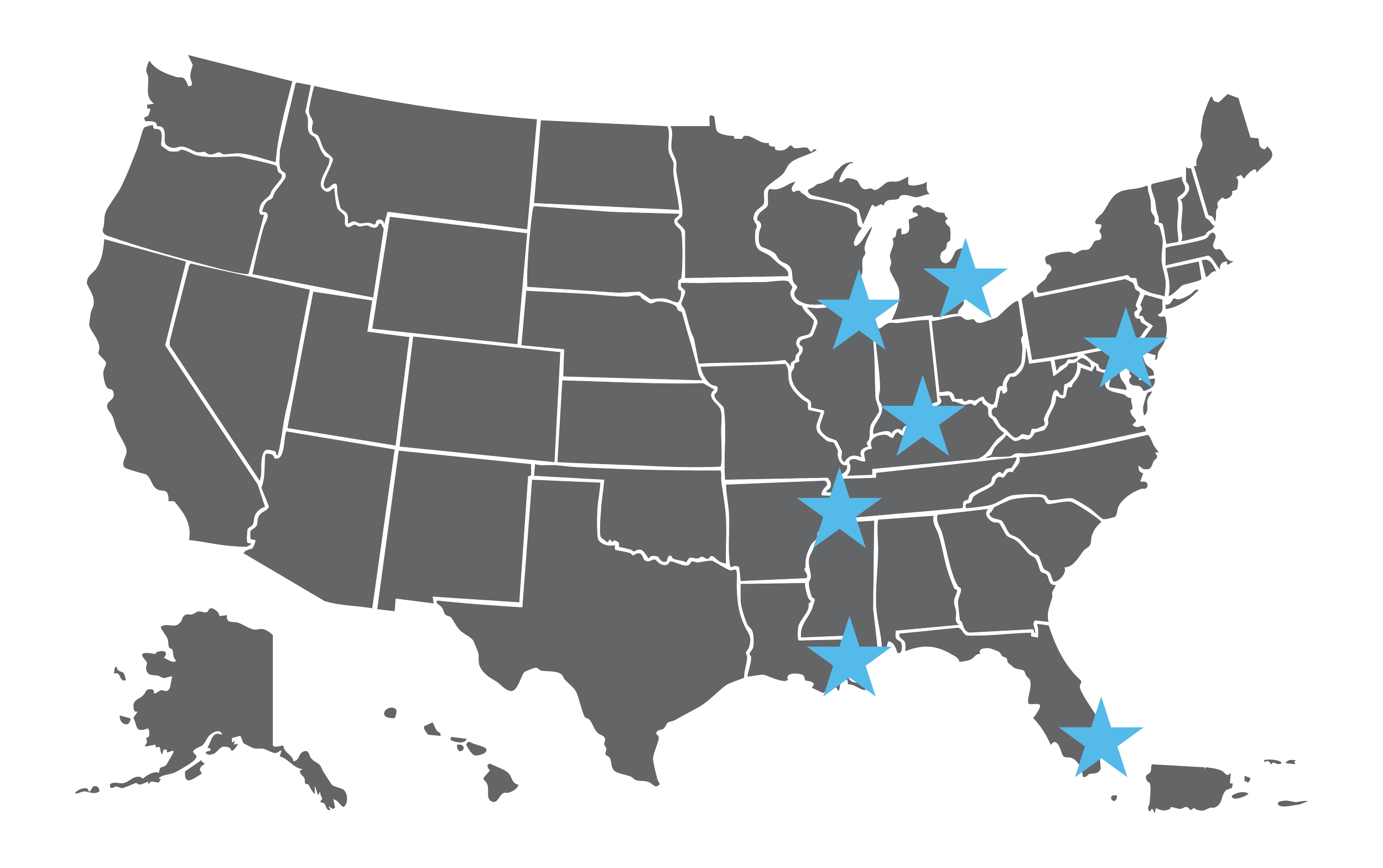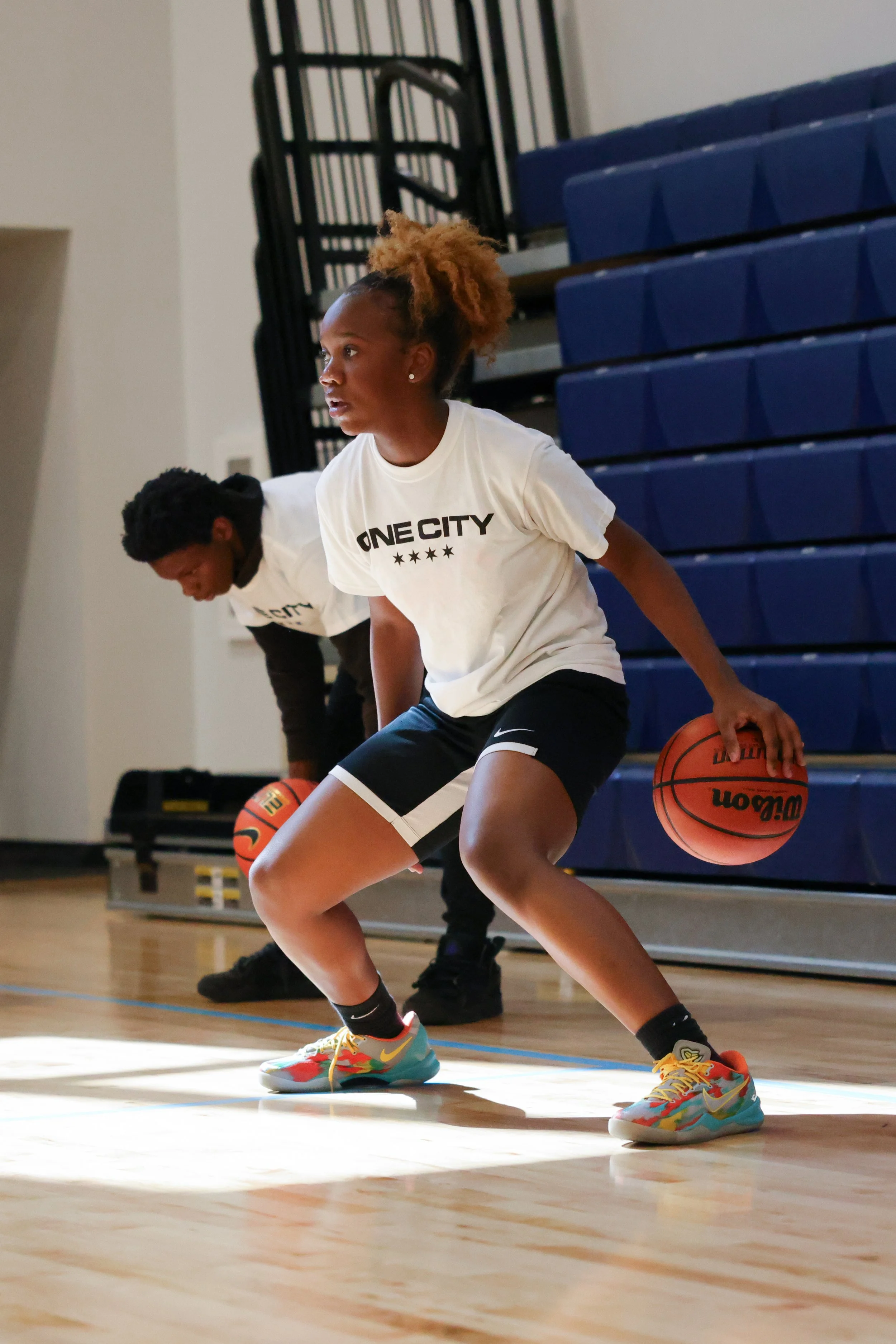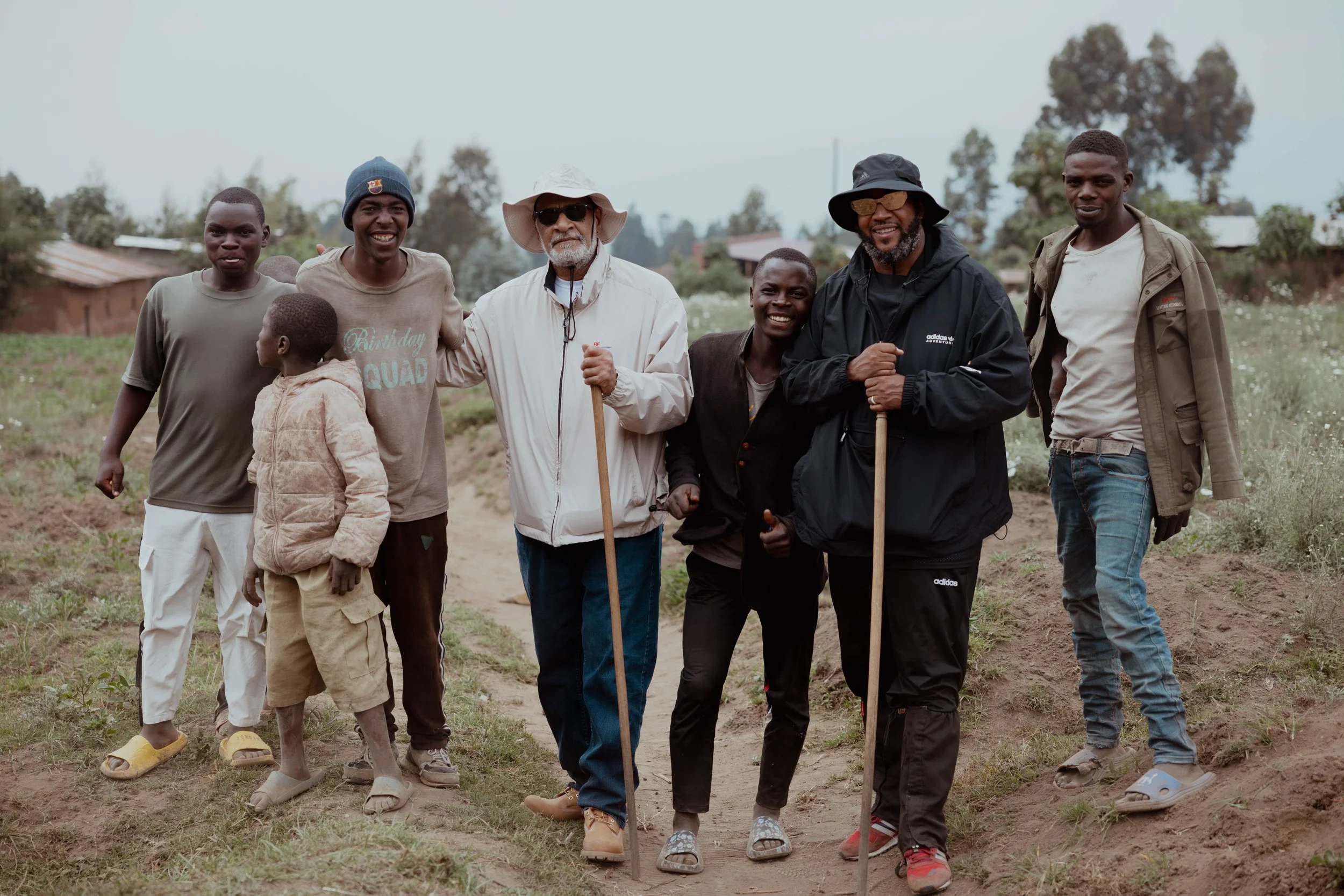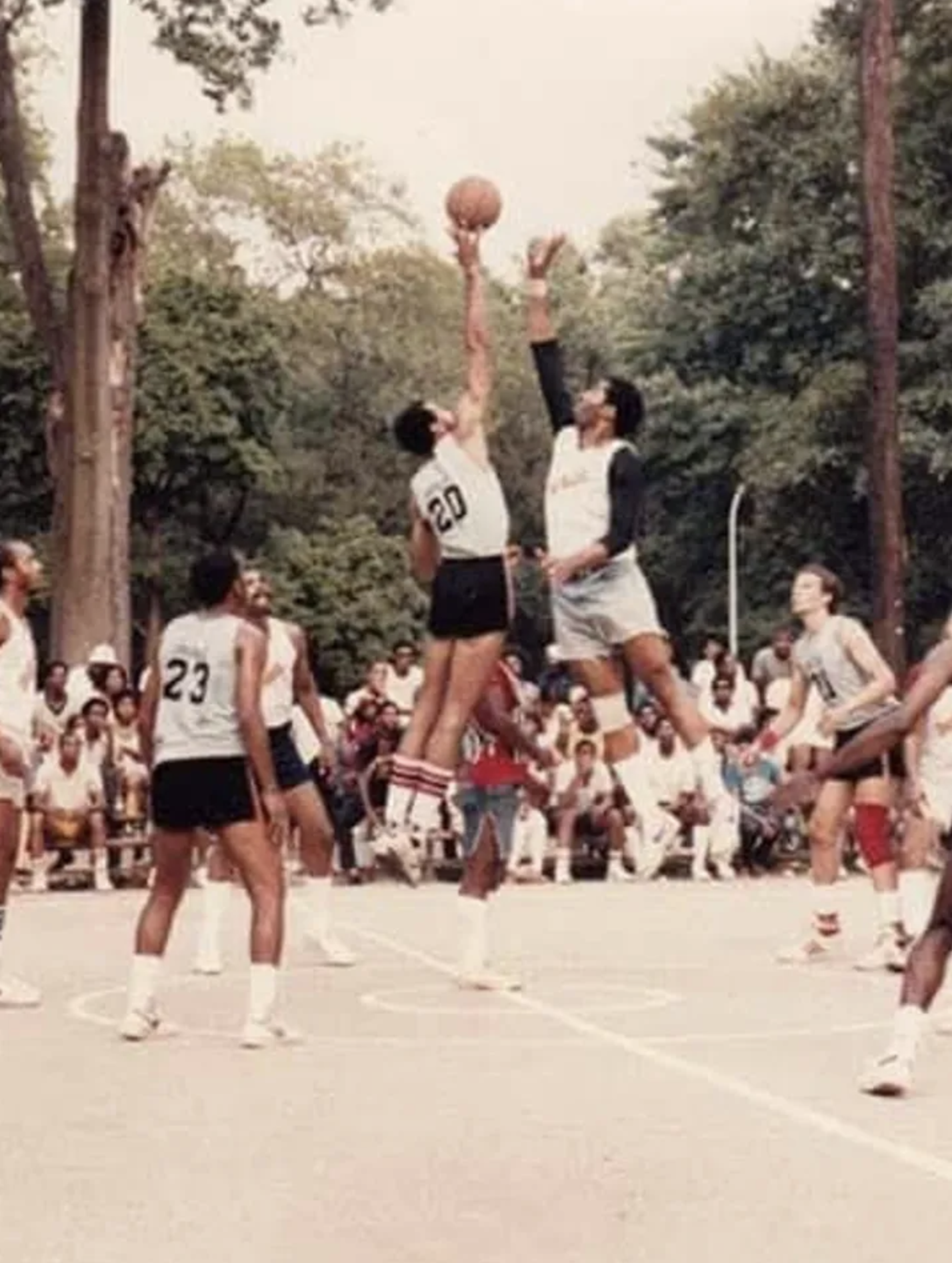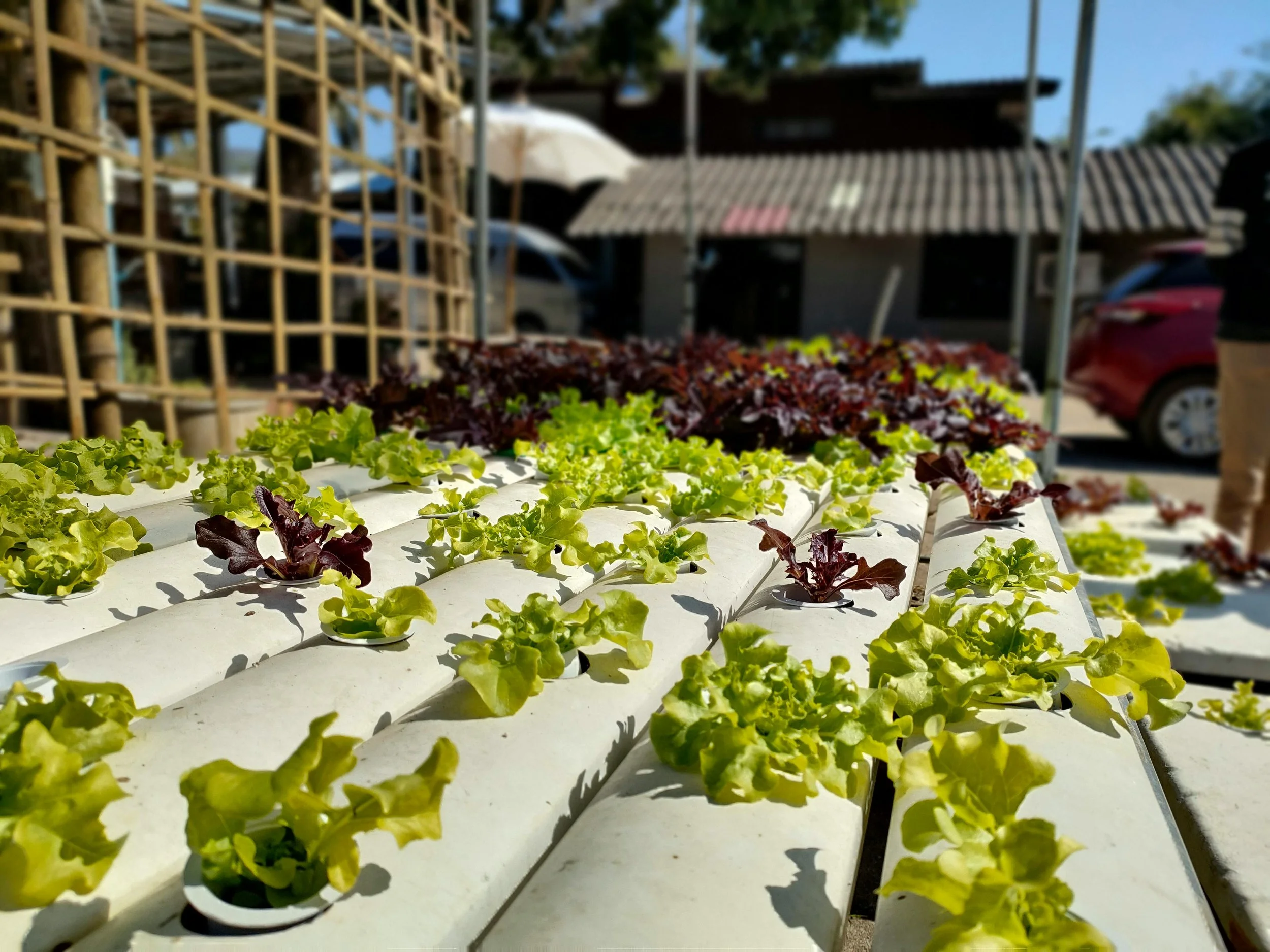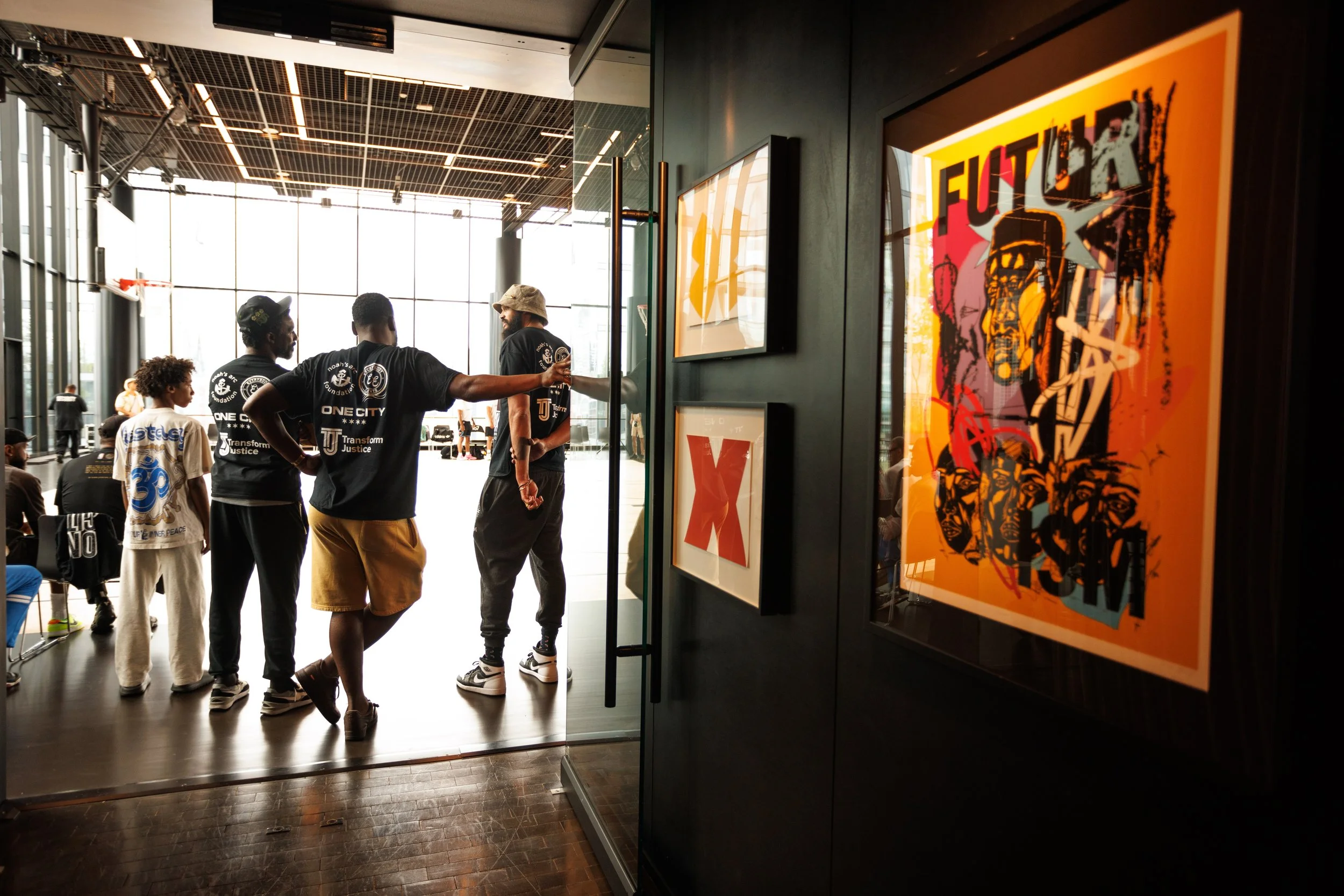
ONE CITY GOES NATIONAL: MEMPHIS LEADS THE WAY
What started in Chicago as a bold experiment using basketball to unite neighborhoods is now a nationwide movement. One City is proving that bringing rivals together as teammates, offering mentorship, and creating opportunities work in any city where violence and division threaten young lives.
The first stop outside Chicago—Memphis, Tennessee.
Why Memphis?
Because Tony Allen said so.
A proud Memphian, NBA icon Tony Allen, known for his grit, grind, and heart, was named One City Commissioner nationwide. He immediately threw his full weight behind the initiative, with one request: bring the model to his city first.
In fact, Tony was so committed to the cause that he chose to debut One City Memphis the same week as his jersey retirement, turning a celebration of his legacy into a call to action for peace.
But the Memphis launch wasn’t just about star power—it was made possible by Tony Allen’s leadership and Cure Violence Global’s (CVG) support. Memphis had already embraced the CVG public health approach to violence prevention more than four years earlier. Organizations like Heal901 had adopted this framework, paving the way for One City to take root.
“One City Memphis is already bringing neighborhoods together. We’re proving this works, no matter the city.”
–Tony Allen
With Allen’s leadership and deep roots in the community, One City Memphis is laying the groundwork for real change through grit and grind.
Local partners make it happen
For One City Memphis to kick off, Heal901 and Memphis Allies, two stalwart local violence prevention organizations, stepped up to help. Heal901, focused on violence prevention and youth development, under the leadership of K. Durrell Cowan, organized a pickup game at Streets Ministries as a premiere for the program, bringing together a team of high-risk clients on their caseload. They played Memphis Allies, a leader in anti-violence efforts who brought mentorship, resources, and strategic intervention to the program. Together, these groups will ensure that One City Memphis retains the same values and community focus as the program at large.
Known as the “Grindfather” for his relentless defense in the NBA, Tony Allen built his reputation locking down the league’s biggest stars. Today, his focus is even bigger: helping stop the cycle of violence in communities like the ones he grew up in. As the One City Commissioner, Tony is doing far more than lending his name—he’s doing the work.
Tony connected to One City after mutual friends of Joakim Noah and Derrick Rose introduced him to Cobe. Tony had been following Cobe’s violence prevention work quietly for years and wanted to get involved.
Following CVG protocol, Joakim emphasized that anyone looking to truly support the work needed to start by understanding the model. Tony agreed, attending CVG’s foundational 101 presentations, where the mission and approach deeply moved him. From there, he and Cobe built a close working relationship, sharing videos, language, and insights from the field every day.
Wanting to immerse himself fully, Tony traveled to New York at his own expense to attend a CVG Violence Interruption and Reduction Training (VIRT)—a five-day intensive training designed to prepare individuals for frontline violence prevention work. VIRT is not just classroom-based; it includes hands-on community learning, street engagement, and real-time exposure to mediation strategies. Tony completed the entire training, even joining outreach workers and community leaders in boroughs across the city to better understand how violence interruption happens on the ground in the streets.
“Anybody can talk about stopping the violence. I want to be out here actually doing it.”
–Tony Allen
Tony Allen isn’t just a former NBA player giving back—he’s becoming part of a national movement and taking that same intensity from the basketball court into the community, protecting his city, his people, and the next generation.
Expanding Nationwide
Memphis is just the start. Plans to formally launch One City Memphis in the summer of 2025 are underway. Expansion plans are also in motion for Louisville, Miami, and beyond.
The formula is simple: Find cities in need, partner with trusted local leaders, and launch a league that transforms lives—on and off the court.
One City is no longer just a Chicago story. It’s a national movement.
A LEAGUE OF THEIR OWN
Announcing the One City Girl’s League
One City changed the game for young men—now it’s time to provide the same opportunities for young women. A One City Girl’s League is launching to provide competition, mentorship, and leadership development.
AFRICA CULTURAL EXCHANGE
Taking One City Global
This summer, One City is partnering with the NBA Basketball League Africa to bring young Chicago women to South Africa for a cultural immersion and leadership training experience. Four of the One City Girl’s League participants will be selected for their leadership capabilities and demonstrated talents to spend time internationally on the continent with fellow hoopers. They will deepen their skills and learn from experts in the field to up their game on the court and in life.
This initiative broadens perspectives, introducing young women—many of whom have never been off the block, let alone out of their neighborhoods—to other experiences and cultures.
ONE CITY, ONE CHAMPIONSHIP
One City Takes Center Court at Cities United Convening in Louisville
In 2025, One City will take center court at the Cities United National Convening, where a new tradition begins: the One City Championship Game. Winning teams from Chicago, Memphis, Miami, and Louisville will face off in a powerful showcase of unity, talent, and transformation. The game will be hosted in Louisville, honoring the city’s rich legacy of community basketball through the historic Dirt Bowl—a legendary tournament that’s brought neighborhoods together since 1969. This isn’t just a title game—it’s a statement. From courts once divided by violence, a national stage emerges, proving that One City is more than a league—it’s a movement.
URBAN FARMING
Feeding the streets—literally
For years, people have talked about “feeding the streets”—One City is doing it for real.
By creating urban farms in food deserts, participants gain jobs in sustainable agriculture, technology, entrepreneurship, and business development while providing fresh food to their communities.
This initiative tackles food insecurity and teaches economic independence.

